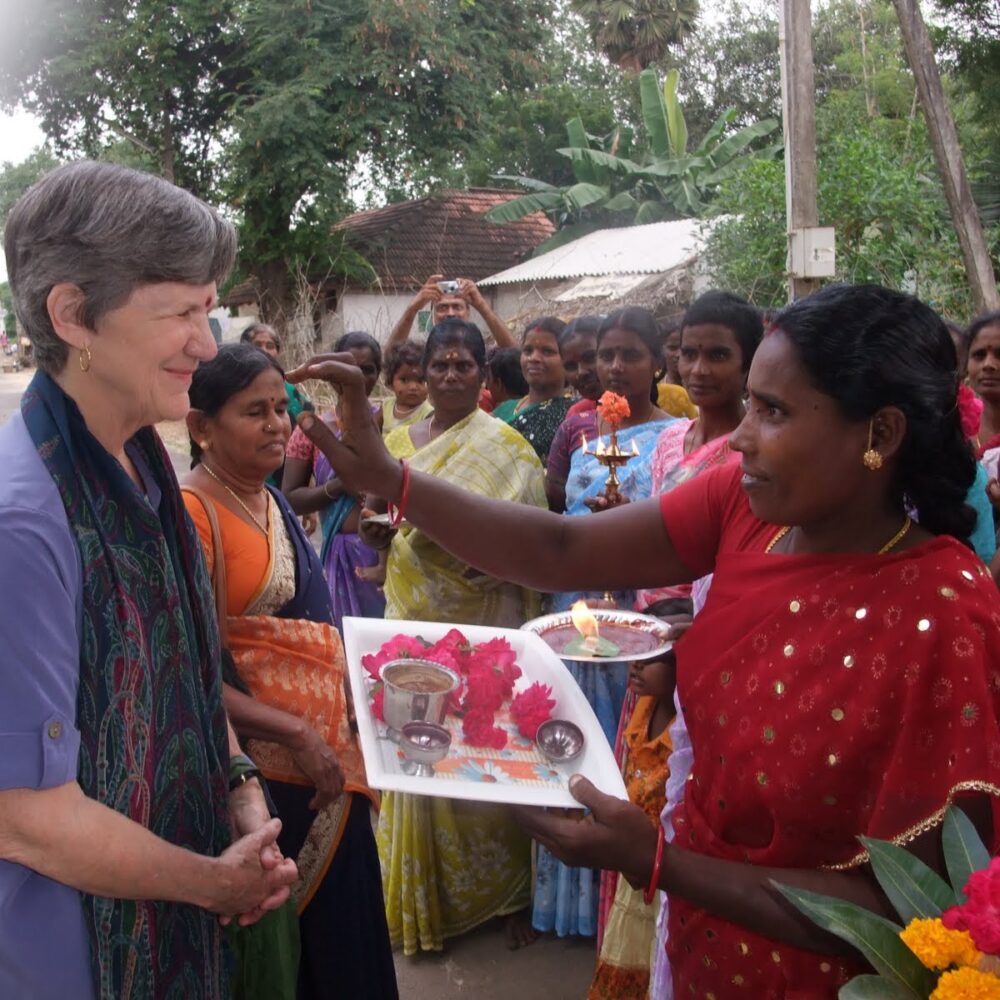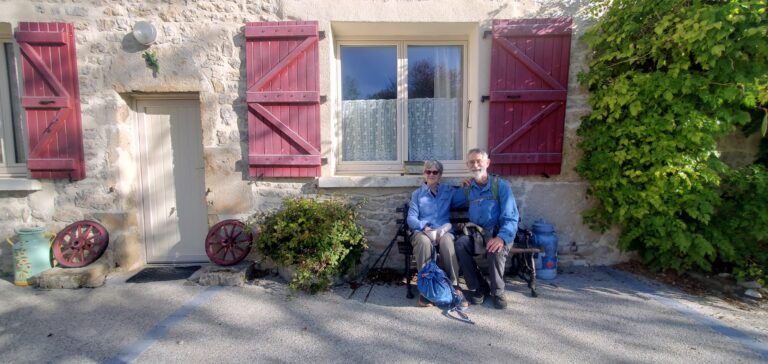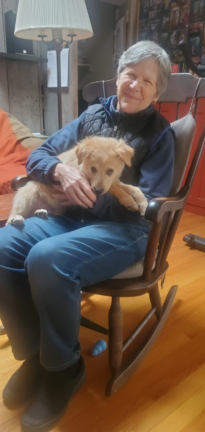
As we began our interview with Demie Kurz, a long-time member of the Religious Society of Friends and retired professor of Sociology at the University of Pennsylvania, who also co-directed the Gender, Sexuality and Women’s Studies program, we were immediately impressed with her flow of conversation and emphasis on the history of Quaker women. Nowadays, Demie Kurz spends her time in retirement writing a book on parenting, written from a sociological perspective. This is her story.
It was during both the Vietnam War and the civil rights movement when Demie’s interest in spiritual traditions of inner light and being active in the world increased; she noted how these two traditions contributed to her efforts to seek a deeper spiritual connection. After visiting the chapel of her college and listening to messages that did not speak to the terrible violence that was taking place, Demie turned to Quakerism. Demie was not raised a Friend, (although she has Quaker ancestors) she was raised with Presbyterian values. But for Demie, focusing on a spiritual tradition that spoke both to the inner light and being active and present in the world was of the utmost importance.
Demie met her husband, Bruce Birchard, who was a member of 57th Street meeting in Chicago, while earning a graduate degree at Northwestern University in Chicago. She soon became active in the meeting. There, Demie’s “feminist” history began where she further connected with Quakers. She was first drawn to the anti-war work of Quakers and its spiritual basis in the early 70’s. At that time, given that patriarchy was still a driving force in all facets of American society, Demie was also drawn to the feminist movement happening in Quakerism. Quaker women were leaders of the Women’s Movement in the 19th century and Demie recognized the importance of Quaker women, including Philadelphia Quaker Lucretia Mott, in drafting the Seneca Falls Declaration, and calling for rights for women. Demie’s friend, the late Quaker Margaret Hope Bacon, brought the tremendous contributions of Quaker women to the history of America in her book, Mothers of Feminism: The Story of Quaker Women in America.

In the 1970’s, Quaker women again became vocal about not being in leadership positions and found their opinions, under-acknowledged, especially given the history of Quaker leaders like Lucretia Mott. Demie found herself right in the middle of the second wave of the feminist movement. During her time studying at Wellesley College, she distinctly recalls a faculty member telling her “the real world is not like this” – meaning that while there were many women in leadership positions at Wellesley, this was not true in the wider world.
In their late 20’s, Bruce and Demie traveled the world for a year by buses and trains, including visits to India on a Fullbright scholarship. During that year Bruce and Demie visited early microlending development projects for women in India with Ghandian leaders. When they returned to the U.S., they helped connect some of these projects to the Quaker organization, Right Sharing of World Resources (RSWR). This resulted in highly productive long-term partnerships between these projects for village women and RSWR.
Eventually, Bruce’s work led the couple to Philadelphia where Bruce worked for the PYM Friends Peace Committee. He later moved to AFSC and served as National Coordinator for its Disarmament Program. In 1992 he became General Secretary of Friends General Conference, serving in that role for 19 years. He has published two Pendle Hill pamphlets and helped start several Quaker organizations, including Quaker Voluntary Service (QVS) and more recently, the Quaker Call. After the birth of their first son in 1977, Bruce helped to start Friends Child Care Center at Friends Center. The couple settled in, raising their family on Taylor’s farm, a Quaker farm community in New Jersey. In 1976 they both joined Central Philadelphia Monthly Meeting (CPMM).
 Demie soon became active in CPMM, serving currently as Co-Clerk for the Meeting Committee Assistance Fund (MCAF). MCAF specifically helps families with temporary funds and works with PYM granting groups for longer term support. The issue of continued inequality and reducing poverty are still greatly interconnected with race and disparity issues which motivates Demie’s life work. Demie connects her work as a sociologist to her faith and practice as a Quaker through advocacy against widespread inequality and poverty.
Demie soon became active in CPMM, serving currently as Co-Clerk for the Meeting Committee Assistance Fund (MCAF). MCAF specifically helps families with temporary funds and works with PYM granting groups for longer term support. The issue of continued inequality and reducing poverty are still greatly interconnected with race and disparity issues which motivates Demie’s life work. Demie connects her work as a sociologist to her faith and practice as a Quaker through advocacy against widespread inequality and poverty.
After 30 years working at the University of Pennsylvania, Demie retired. She has been intentional in weaving Quakerism into her life’s passions for teaching, researching, and writing. Demie served as Co-Director of the Alice Paul Center for Research on Women, Gender, and Sexuality and the Co-Director of the Gender, Sexuality, and Women’s Studies program. Her interest in contemporary issues of gender, specifically focused on the family has led to authoring her upcoming book about parenting, “Letting Go; Parenting Teens and Young Adults in a Time of Uncertainty” to be published by Oxford University Press.
The book is based on interviews with a diverse group of mothers, and some fathers, about their actual experiences of parenting. She argues that the voices of parents are too rarely heard in literature that lays out “what parents should do” without understanding the actual challenges they face. For Demie, her experiences as a career-long sociologist, a Friend and 20th AND 21st century advocate for Women’s rights comes full circle leading her to author a book about the challenges mothers and fathers face and the failure of our society to adequately support families.
Demie has been married to her partner, Bruce, for 50 years and is the mother of two adult sons and two grandsons. She enjoys spending time with her two grandsons and serving on various committees at Central Philadelphia Monthly Meeting. Today, she and her family are still active members of CPMM. Demie is proud of her meeting’s history of anti-racism work and being among the first meetings to host a gay marriage.
While we weren’t the first to interview Demie (here’s another article on her life), we were greatly moved by Demie’s desire to help women have a voice and help others understand what it takes to be a parent in today’s society.
This article was prepared by Sheila Sorkin, PYM Aging Support Coordinator in collaboration with Tiffanie McKinnon, Senior Content Manager and member of the PYM Communications team to provide support, resources and engage the aging community of the Philadelphia Yearly Meeting as part of the “To Brighten Your Day” series.